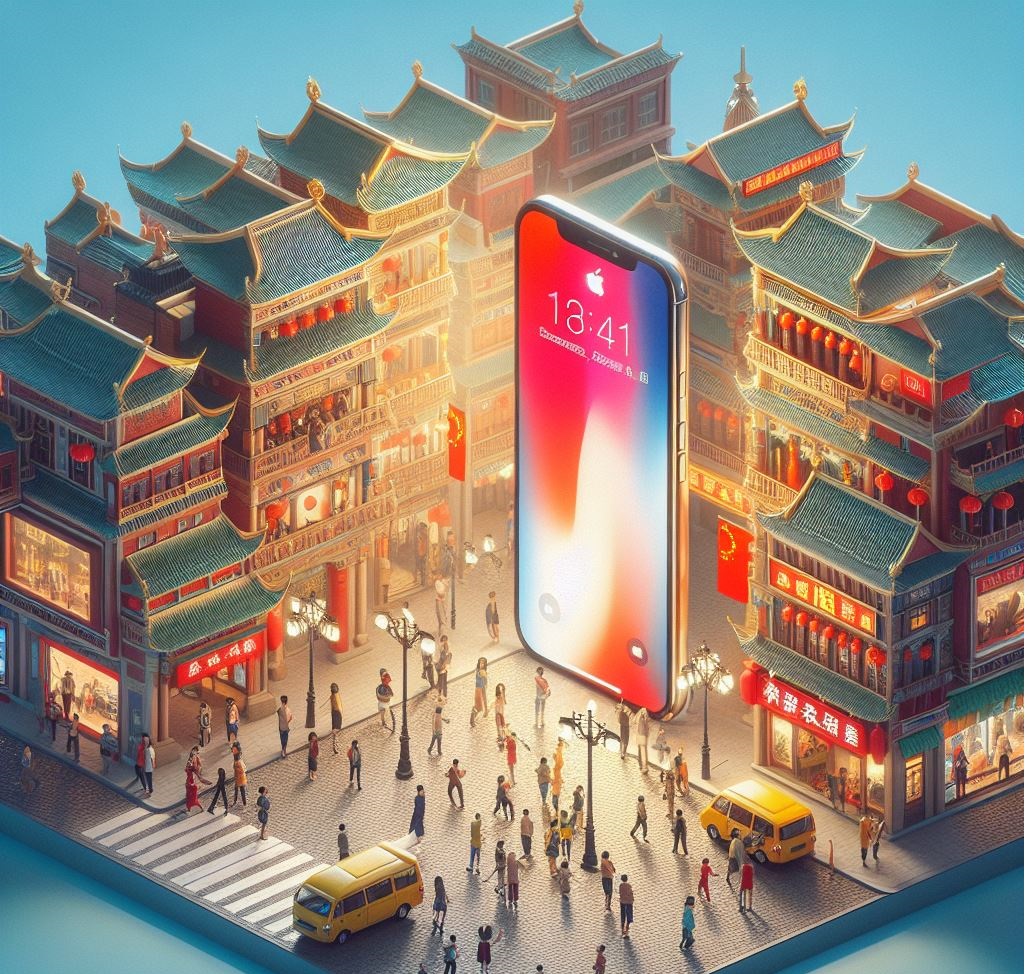In a notable development poised to reshape the technological landscape of China’s smartphone market, reports have surfaced suggesting that Apple is in discussions with Baidu, the Chinese web giant, to introduce advanced artificial intelligence features powered by Baidu’s ERNIE chatbot into future iterations of AI-Powered iPhones sold within the Middle Kingdom (China). This potential collaboration underscores Apple’s strategic maneuvering to tap into Baidu’s machine learning technology, aiming to augment its foothold in China’s highly competitive smartphone arena.
Apple’s AI-powered iPhone endeavors in China
Amid escalating efforts to fortify its artificial intelligence capabilities, Apple appears to be forging a partnership with Baidu to leverage the latter’s ERNIE chatbot for integration into iPhones tailored for the Chinese market. This prospective alliance, as per insider sources cited by the Wall Street Journal, signifies Apple’s proactive stance towards incorporating third-party AI models, following explorations with Google and OpenAI, to amplify the cognitive prowess of its iconic devices. However, such a venture could encounter regulatory hurdles in China, given the stringent guidelines mandating regulatory scrutiny of AI models prior to public deployment, aimed at curbing any potential divergence from government directives.
Incorporating ERNIE, introduced by Baidu in early 2023 as a counterpart to Google’s BERT, into iPhones would represent a significant stride towards infusing localized intelligence into Apple’s flagship products. Notably, ERNIE’s functionality extends beyond conventional language processing, encapsulating a self-censoring mechanism that navigates sensitive political inquiries in alignment with Chinese regulatory frameworks. Such nuanced adaptations underscore the intricate interplay between technological innovation and regulatory compliance within China’s dynamic tech ecosystem.
Apple’s AI strategy and market dynamics
While Apple has traditionally refrained from overtly marketing AI capabilities, recent shifts suggest a departure from this stance, with the tech behemoth spotlighting AI advancements in its marketing endeavors. With competitors such as Samsung already leveraging Baidu’s ERNIE in their Galaxy smartphones within China, Apple’s potential integration of ERNIE underscores a strategic imperative to bolster its competitive edge in the region’s smartphone arena. Also, Apple’s recent marketing rhetoric surrounding its M3 MacBook Air as the epitome of AI-driven consumer laptops hints at a broader strategic pivot towards AI integration across its product portfolio.
However, lingering ambiguity persists regarding the extent of AI integration within Apple’s operating system, prompting speculations regarding potential revelations at the upcoming Worldwide Developers Conference (WWDC) in June. Against the backdrop of an evolving AI landscape, characterized by a proliferation of AI-enabled personal devices boasting localized neural network accelerators, Apple’s strategic alignment with Baidu’s ERNIE exemplifies a concerted effort to navigate China’s regulatory maze while capitalizing on burgeoning AI opportunities.
As Apple charts its course towards deeper integration of AI capabilities into its flagship products, pivotal questions loom regarding the ramifications of its prospective collaboration with Baidu’s ERNIE for the broader technological ecosystem in China. How will Apple’s strategic pivot towards AI impact its competitive positioning within China’s fiercely contested smartphone market? And what insights will WWDC unveil regarding Apple’s overarching AI strategy in the wake of its potential partnership with Baidu? Amidst these transformative shifts, the convergence of Apple’s innovation prowess with Baidu’s AI expertise promises to redefine the contours of technological innovation in China’s dynamic digital landscape.
